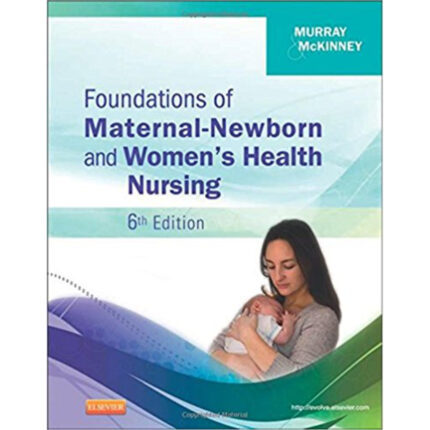Highlights
CHAPTER 11
Care at the End of Life
11.1•The nurse is discussing hospice care with the family of a 68-year-old man dying of cancer. The wife of the client states that she is worried that Medicare will stop payments if the client lives longer than 6 months. The nurse can support the wife by explaining
1. Medicare does not limit hospice benefit.
2. the doctor can best explain the role of hospice.
3. the finance office could answer that question.
4. we do not know if the client will live past 6 months.
Answer: 1
Rationale: Medicare law does not limit the hospice benefit, but Medicare regulation often discourages long lengths of stay in hospitals. Telling the client to contact the physician or finance department does not provide answers that the client’s wife is seeking. The nurse should take responsibility to seek out the information for the client and his wife in this time of stress and need. It is true the client may not live 6 months, but expressing this to the wife does not provide support for the concern expressed.
Intervention
Psychosocial Integrity
Application
11.2•A 75-year-old client who is dying from liver disease tells the nurse that he is concerned about going home and living on his own. He is independent in his care at present and does not want to see this end. He expresses his fear of dying alone and losing control of his body functions. The nurse determines that this client’s concerns are
1. common fears and concerns of the dying patient.
2. signs of depression.
3. unrealistic fears because the client shows no symptoms at present.
4. appropriate to get an order for hospice care.
Answer: 1
Rationale: Common fears of the dying patient include death itself; thoughts of a long or painful death; facing death alone; loss of body control, such as bowel and bladder incontinence; loss of consciousness; and so on. Withdrawing and not expressing may be more of a sign of depression than talking about them. They are realistic concerns because they are expressed by the patient and at this stage, the client is not ready for hospice care because a time frame of 6 months has not been identified and the client is still independent.
Assessment
Psychosocial Integrity
Analysis
11.3•The nurse is completing a home care visit of an 86-year-old client who is dying of end-stage pulmonary disease and dementia. The client has been taking narcotic medication for the treatment of chronic arthritic pain. During your visit, the family tells you that the client seems more restless, grimacing and crying. The nurse interprets this report by the family as
1. the client being uncooperative because of a personality disorder.
2. not an unusual finding and the family should continue to administer the medication as needed.
3. a sign that the client may be in pain and adjustment to the pain medication or administration schedule is needed.
4. a need for the client to try alternative methods for pain relief instead of pain medication.
Answer: 3
Rationale: Clients with dementia may not be able to accurately express their pain. Other behavior changes, such as agitation, restlessness, and grimacing, often indicate ineffective management of pain. Therefore, adjustments to the pain medication or schedule are warranted. Personality disorders with the presence of dementia are difficult to identify and to differentiate the source of the behavior. Although alternative measures augment pain relief, medications and their administration should be examined as a priority of the assessment.
Assessment
Physiological Integrity
Analysis
11.4•An 82-year-old client is dying of lung cancer. On review of the client’s medication, the nurse notes that the client is being given pain control and that the client requires increasingly higher doses of medication. The physician prescribed morphine 6 to 10 mg every 4 hours. The previous dose of 10 mg was given 2 hours ago, and the client reports that the medication barely affected his pain. What intervention would the nurse perform to address the client’s pain?
1. wait 2 more hours and give the client 10 mg
2. give the client 10 mg of morphine even though it is before the scheduled time
3. contact the physician for an adjustment in pain medication
4. give the patient 5 mg of morphine every hour instead of 10 mg every 2 hours
Answer: 3
Rationale: Dying patients may need more pain medication than the normal range for the prescribed drug. Organic changes occur rapidly and systems are closing down, thus absorption levels of drugs are diminishing also. Therefore, consulting with the physician for adjustment of pain medication is warranted. Delaying medication would cause unnecessary suffering for the client and altering the administration schedule is outside of the scope of the professional practice role of nursing.
Implementation
Physiological Integrity
Analysis
11.5•The nurse is reviewing the care of an 89-year-old client who is dying of a brain tumor from metastatic cancer. The client is lethargic, has slurred speech, but seems to be aware of people and surroundings. The nurse provides instruction to the nurse aide to provide oral care. What would the nurse include in the instruction to the nurse aide?
1. use alcohol-based mouthwash to keep secretions down
2. keep the client’s dentures in at all times
3. rinse the mouth with water and ask the patient to swish and swallow
4. provide mouth care several times a day with a nonalcohol-based solution or water
Answer: 4
Rationale: Oral hygiene is crucial in the dying patient. Care is best provided with nonalcohol-based solutions that are soothing and nonirritating to an already dry mucosa. Clients may not be able to have dentures in because of mouth breathing, which causes dry and painful mucosa. Clients with speech deficits often have swallowing problems. Therefore, the risk for aspiration is present in this client.
Planning
Physiological Integrity
Application
11.6•The family of a 75-year-old client who is dying of liver cancer expresses a concern that the client will not eat or drink. The client is alert and oriented, and expresses no desire to eat. What action would the nurse take?
1. comply with the client’s wishes despite the family’s concern
2. contact the physician for an order for tube feedings
3. consult the dietician for feeding supplements
4. force fluids
Answer: 1
Rationale: Anorexia and dehydration are common and normal with the terminal client. If the client expresses the desire to not eat, the client’s wishes should be respected. The nurse should educate the family and reassure them that anorexia may result in ketosis that can lead to a peaceful state of mind and decreased pain.
Implementation
Physiological Integrity
Application
11.7•The nurse is caring for a 78-year-old client who is dying of renal failure and congestive heart failure. The client describes having odd dreams and appears to be talking to people not present in the room. The nurse determines that the client is showing signs that are
1. normal visual and auditory hallucinations at the end of life.
2. indicators that death is pending.
3. indications of ineffective pain medication.
4. indicative of an overdose of narcotic medication.
Answer: 1
Rationale: Hallucinations are common in dying patients. Respiratory, neurological, and cardiac changes are more likely to indicate impending death. Hallucinations are unlikely to be caused by pain medication, and overdoses of narcotics are manifested by respiratory depression and coma.
Assessment
Psychosocial Integrity
Application
11.8•The nurse is providing postmortem care to a client who died 2 hours ago. As the nurse turns the client to clean the body, the client elicits a respiratory type sound. What steps would the nurse take next?
1. report to the physician the client is still breathing
2. reposition the client airway
3. continue with the postmortem care
4. check for a pulse
Answer: 3
Rationale: It is normal for the body to make a respiratory sound after dying when the body is turned or the arms are moved. It is merely air leaving the lungs and not respiration. Contacting the physician is not necessary because the sound is a normal finding. Repositioning the airway and checking for a pulse are not necessary in an already-deceased client.
Implementation
Physiological Integrity
Application
11.9•A nurse aide reports to the nurse that the 87-year-old client is not breathing well and that the skin is cold and mottled. The client has a living will and requests comfort measures only. The nurse’s action to care for this client would be to
1. withhold pain medication, hygiene, and nutrition until the client dies.
2. contact the physician for orders to control the client’s breathing.
3. ask the family what they want to be done for the client.
4. instruct the nurse aide to provide personal hygiene and skin care as outlined in the care plan.
Answer: 4
Rationale: Comfort measures only indicate that the client does not want extraordinary measures to sustain life. This does not mean that nursing care ceases but that nursing care to provide patient comfort is intensified and maintained through the end stages of the client’s life. Contacting the physician to intervene to control respiration is considered adding extraordinary measures and is inappropriate, as is going against the client’s written wishes when a living will is present and in force.
Intervention
Physiological Integrity
Application
11.10•A nurse is caring for a 90-year-old client who has recently died from a long-standing chronic illness. The family had been in constant presence with the client during the past 2 weeks, experiencing the dying process. They are present when the client ceased to breathe. The family’s reaction at the time of death was very emotional, as if they were in a state of disbelief. The nurse interprets this behavior to be
1. normal shock when experiencing the loss of a loved one.
2. maladaptive coping of the family.
3. irrational behavior.
4. expression of anger.
Answer: 1
Rationale: Despite long-standing illnesses, families do not give up hope. When the loved one dies, it is quite normal for the family to experience shock and disbelief that the client is gone. It is not anger, maladaptive coping, or irrational behavior.
Assessment
Psychosocial Integrity
Analysis













Reviews
There are no reviews yet.